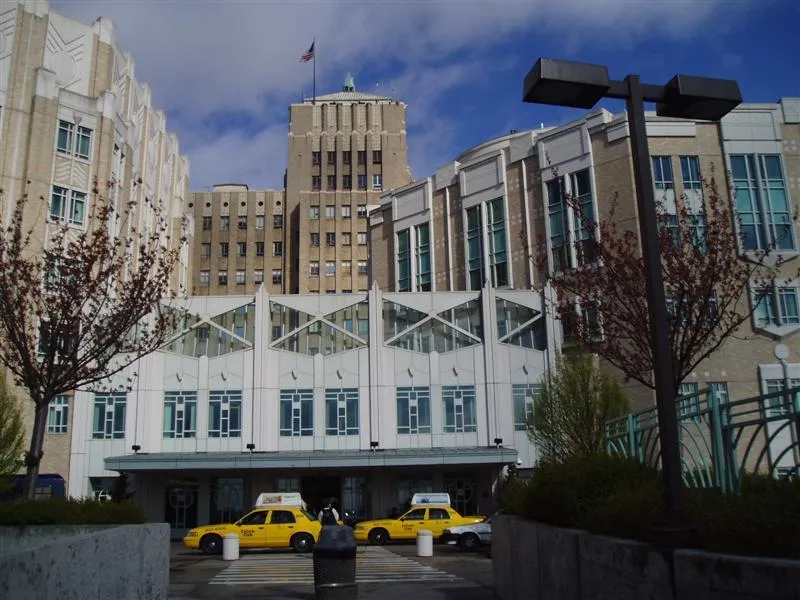WFSE Welcomes New Mental Health Care Providers

Last week WFSE welcomed new Mental Health Practitioner Leads and Mental Health Practitioner Clinical Specialists at the Harborview Medical Center to our union. The workers came together for a voice on the job, rallying around issues of discrimination, safety, and fair pay.
They join the rising tide of AFSCME’s United We Heal campaign, elevating the voices and needs of the workers who are striving to modernize an industry that has long lagged behind modern needs.
"I joined the union because behavioral health employees carry the incredible physical and emotional burdens of people suffering in our society,” said Garrett Hebel. “We deserve a say to make our work lives better, so we can show up for our clients.”
Hebel and his coworkers support some of the most vulnerable members of our communities, and they say the union will give them a chance to do their jobs to the best of their abilities.
“I am joining the union to advocate for wages that can provide a good standard of living, quality healthcare, and safe working conditions so we can do our jobs,” he explained.
Rena Elkins has been a mental health and substance abuse counselor for almost 20 years.
“I love doing what I do,” she said. “To help people who are marginalized and stigmatized, to help people to succeed and work through their problems, is just so rewarding.”
Elkins said she and her coworkers have faced issues with safety and harassment at work.
“Most people with mental illness or drug addiction are grateful to have help and are cooperative, but there are a few people who are unstable and may be a risk until they get the help they need,” she said.
She joined the union to have a channel for advocacy and collective action.
“I want to be part of a larger group that will support each other in order to protect our job security, wages, pension and rights,” she said.
Behavioral health workers face real challenges in their mission to empower and heal. They are at the forefront of the movement to modernize the mental health care system, and they need a voice on the job so their patients can get the care they need.
America’s mental health care system has not kept up with rapid change in the industry. It is not designed to meet the needs of today’s citizens, like crises with opioids and methamphetamines, acute mental illness, suicide, and posttraumatic stress disorder resulting from mass shootings.
Due to insufficient pay, workplace safety issues, and heavy caseloads, staff burnout and high rates of turnover are endemic among behavioral health workers. Studies have shown that nationally, 57% of mental health workers showed high burnout levels.
Burnout and turnover have real consequences for clients, too: having to start over in treatment with new providers is so daunting that many clients become less willing to engage in and continue care.
Behavioral health workers are joining together across the country with ASFCME’s United We Heal campaign. Members are lobbying in Oregon, testifying in Washington, D.C., and delivering petitions to management in Nevada.
On the national level, advocates are pushing for the extension of the Excellence in Mental Health and Addiction Treatment Expansion Act, which would extend funding for Certified Community Behavioral Health Clinics in communities across the country, meaning expanded access to mental health and addiction treatment services with reduced wait times.
Mental health advocates are optimistic about the funding of a new federal student loan repayment program to award Federal student loan repayment assistance to behavioral health workers treating patients in recovery from a substance use disorder.
Elkins is ready to speak up on behalf of workers like her and the patients they serve.
“As a group of people, we’re stronger than we are individually, and if we recognize that something is important for us moving forward, whether it’s pay, safety or benefits, we certainly will have a lot more power to accomplish that,” she said.
